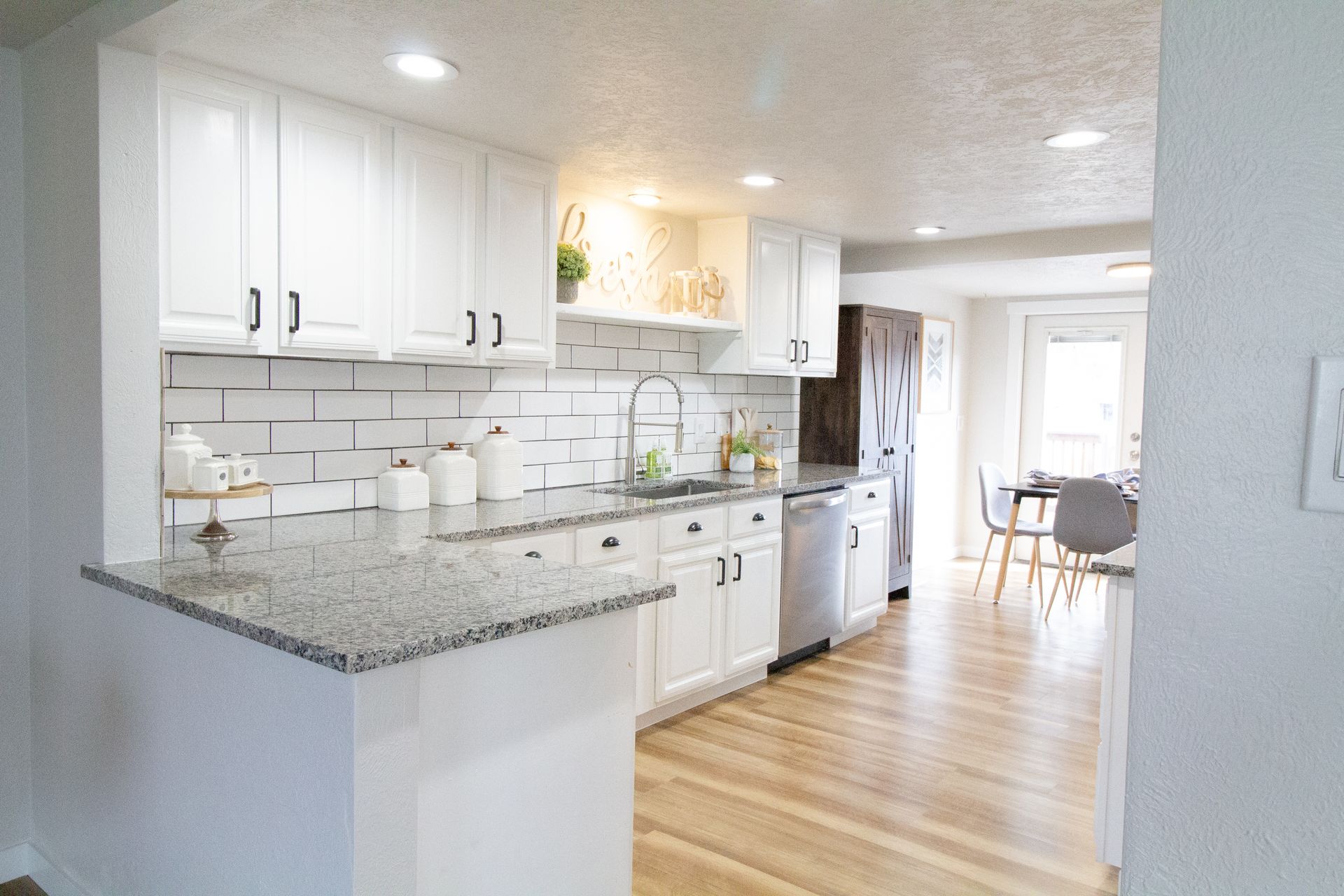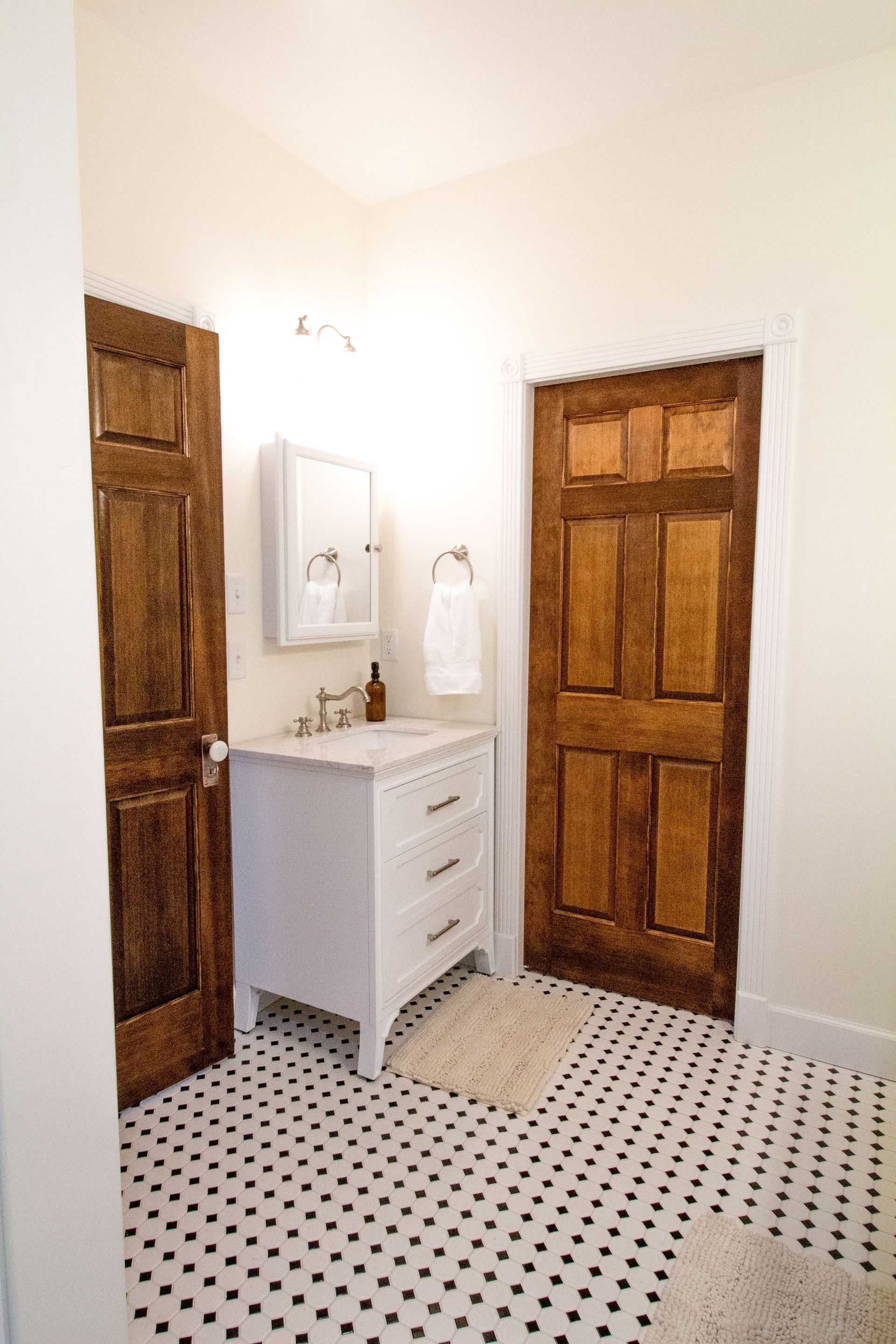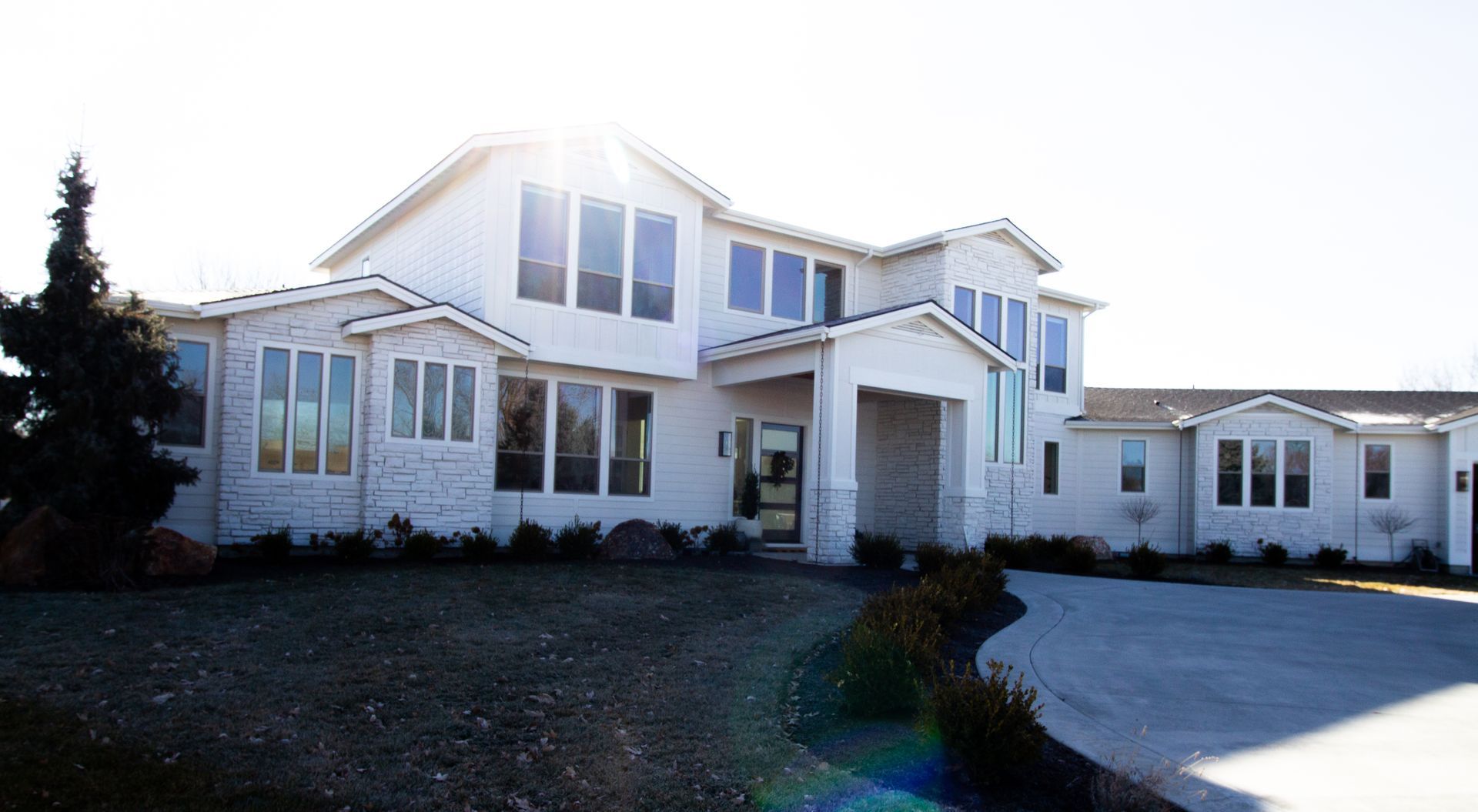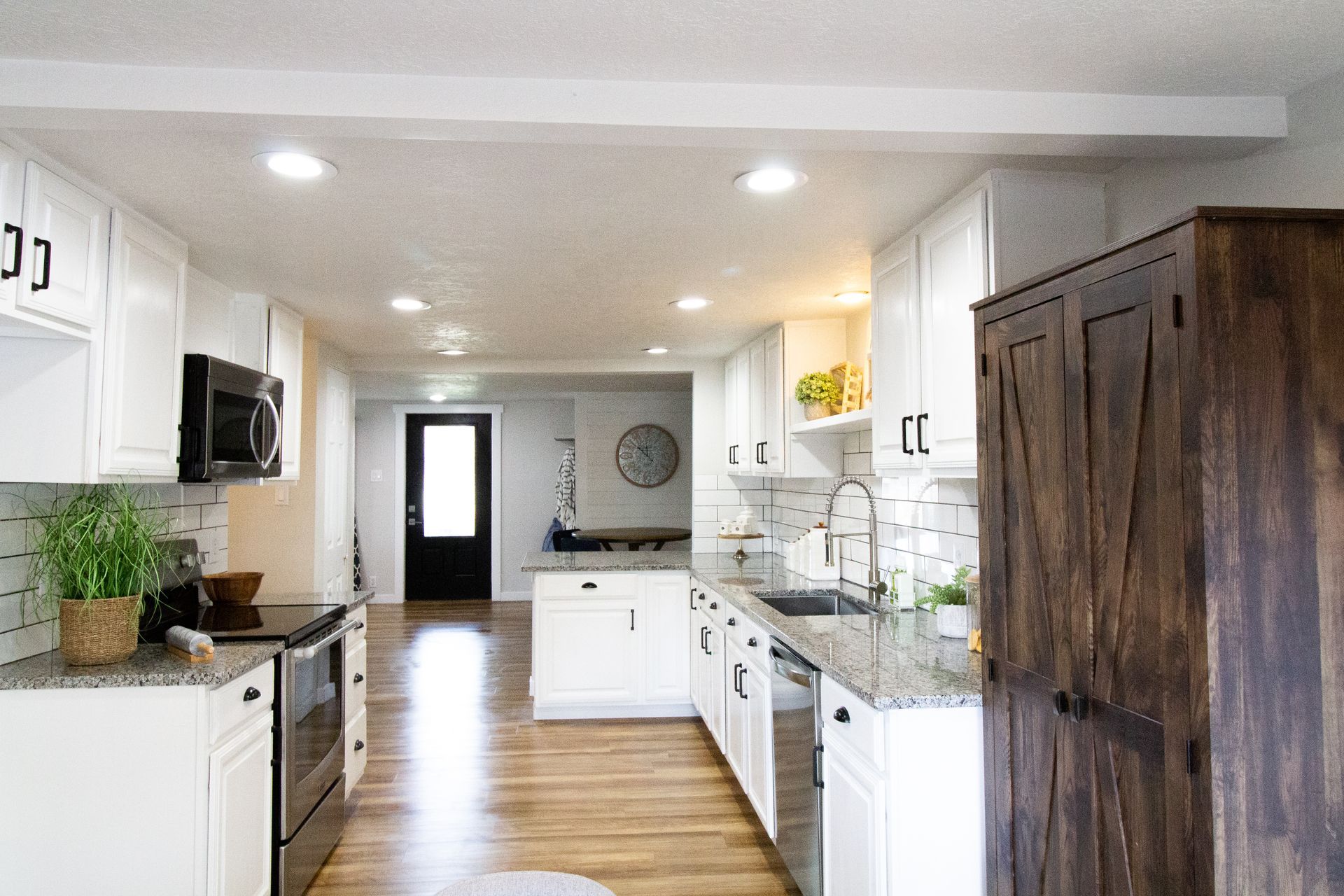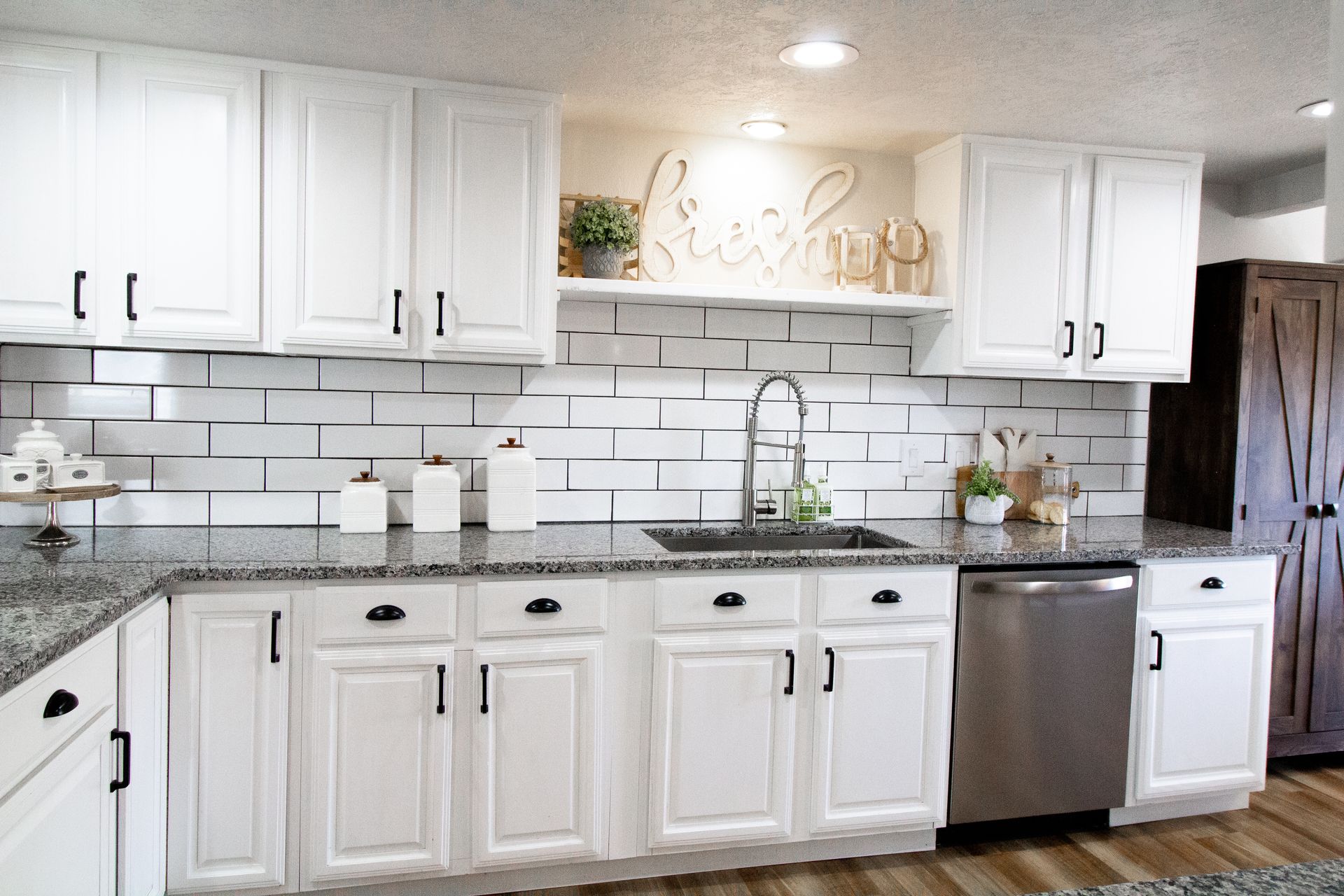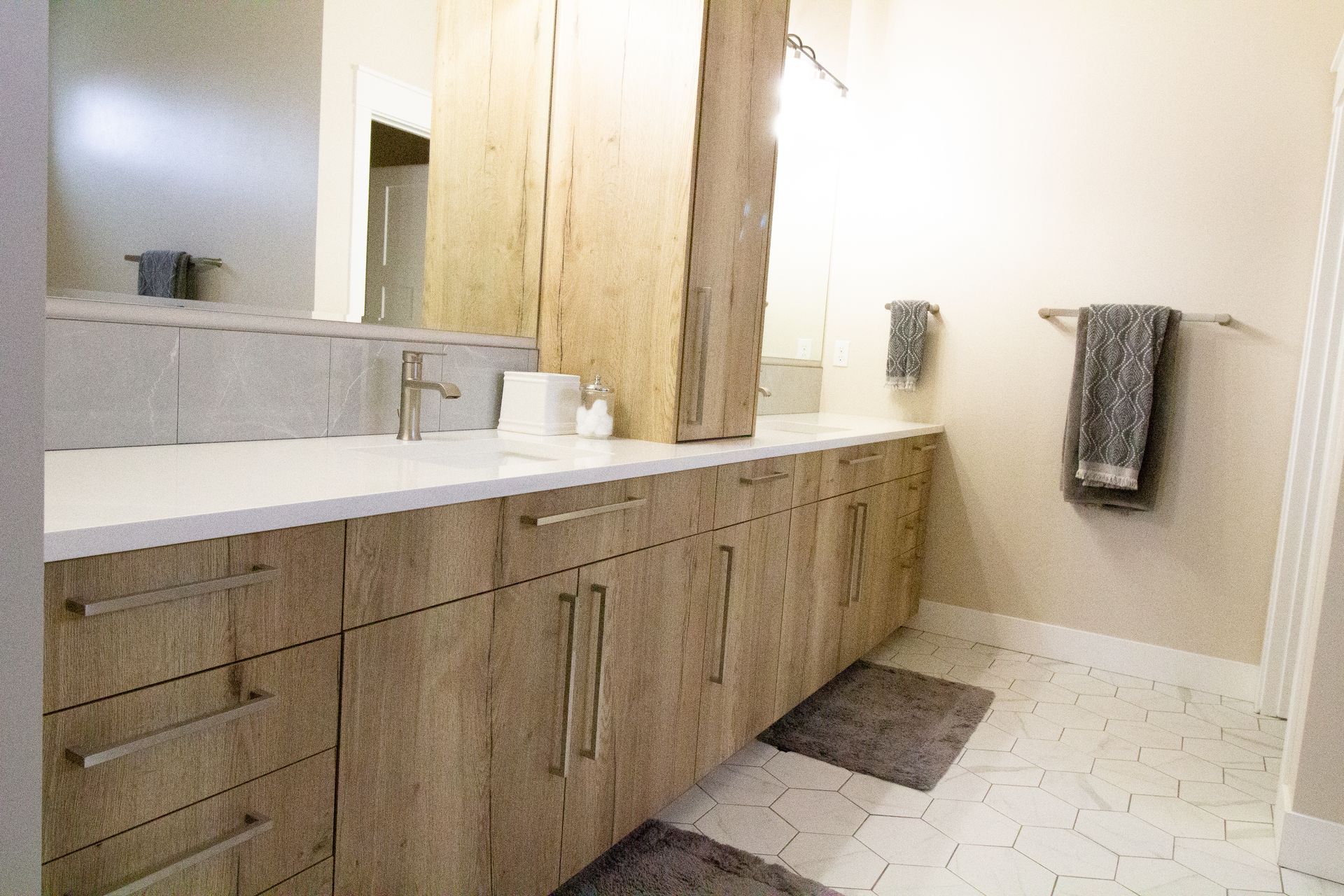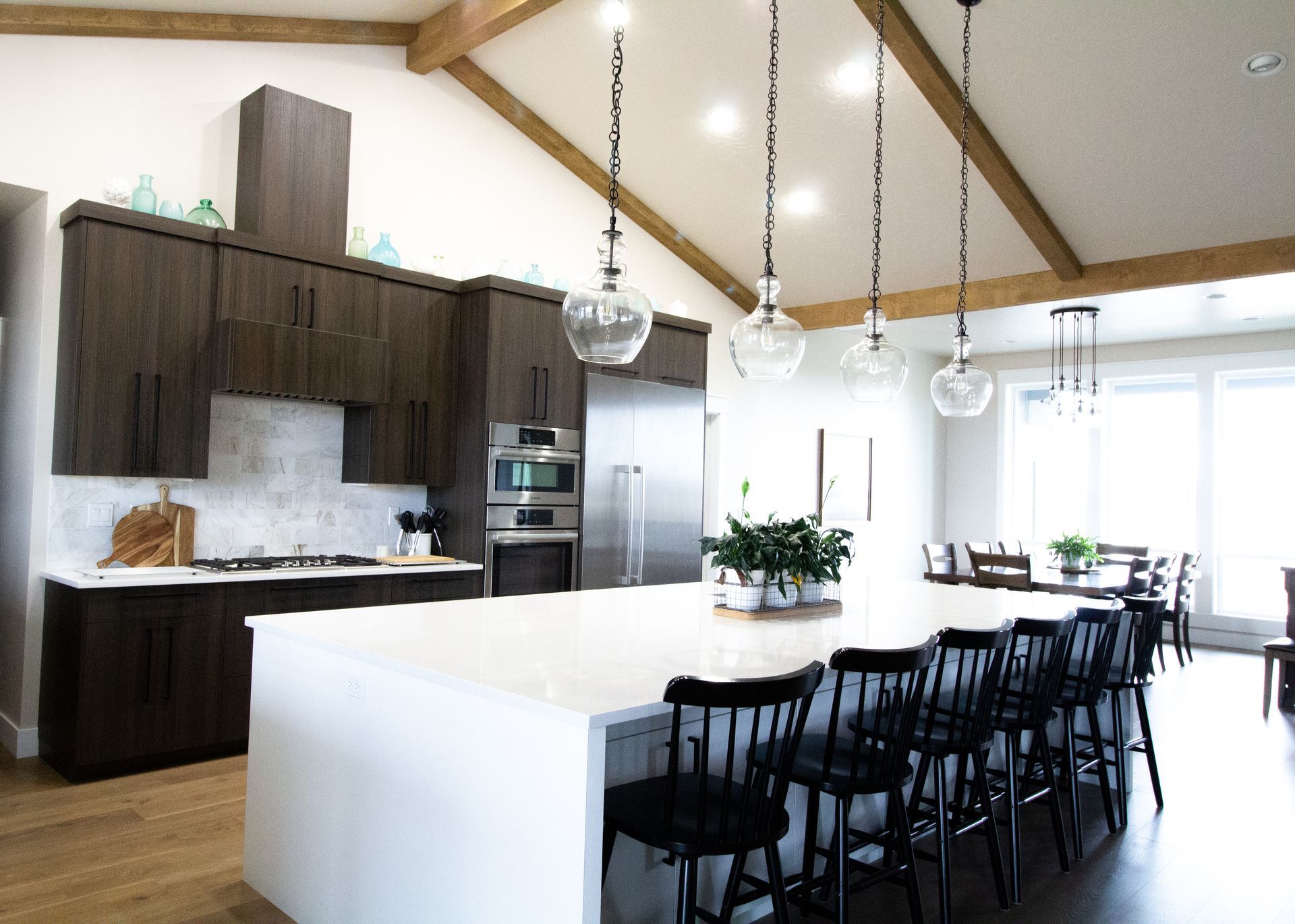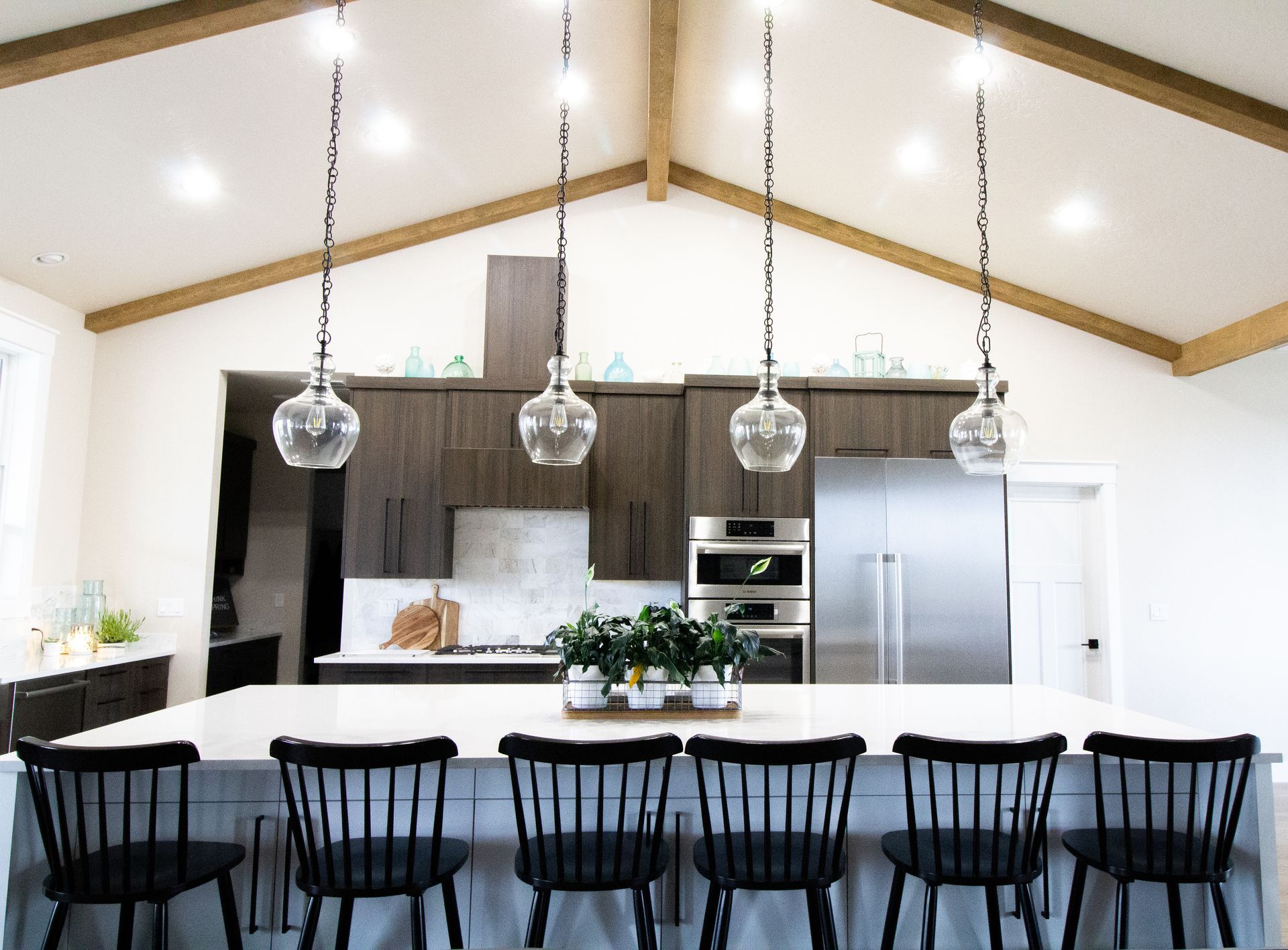By Dan Christensen
•
March 18, 2023
Often builders get so caught up in the world of construction that they fail to communicate well with clients about how the build process works. Since clients don’t build a custom home several times a year like the builders do, most are experiencing the construction process for the first or second time when they hire a custom home builder. To help answer some of the basic questions that will help you determine which custom home builder in the Boise area is the right fit for your project, I have outlined some key information below. This information is pretty general among all builders. If you want specific information for your project, I’m happy to meet with you to go over the details. How long does a custom home take to build? The answer to this question brings me back to when I was in law school—it depends. However, I can give some pretty generic information that will be a good rule of thumb for you. Drawing the plans, depending on the size of your home and detail involved can take between 1-3 months. Most builders need 2-4 weeks to dial in all the specific details with you and get a formal bid put together for your project. Then, permitting can take 1-2 months. Once the builder has a permit, signed contract, and your financing is in place, most custom builds fall into the 7-12 month timeframe to build. Specialty items that take longer to arrive like certain doors, windows, or appliances can push projects into the 15 month range. Overall, plan on about 18 months from the time you start plans to the time your home will be finished. There are a lot of variables involved of course. I have done some custom homes that took us about 7 months from drawings to client move in, and I have done others that took almost 2 years. But the median timeline for most of my projects to go from initial consultation to owner move-in is in the 18 month range. Do I have to decide everything before the builder can give me a bid? This is a great question. I’m going to break part of the answer into another heading. The short answer is, no. For example, custom home builders in Kuna and other areas in the Treasure Valley have a pretty good idea of their costs and can bid jobs without every detail outlined. That being said, specific things like concrete patios, siding type, stair style, number of bathrooms, flooring types (not necessarily specific flooring, but just a general idea of what rooms get tile, hardwood, carpet, etc.), and roof type are all important details that must be nailed down prior to bidding. However, for the items that are generic like “hardwood” or “granite” where you need to make a specific selection, most builders provide you with what is called an “ALLOWANCE.” What is an allowance item? Allowance items are things where the builder has gotten a general feel for the look and style you are going for, but you have not chosen a specific item, and therefore, the builder cannot get you an exact price for that part of the project. Example: You know you want real hardwood throughout the house, but have not selected the specific type/brand that will actually be put in. To get you an accurate bid and keep the process as streamlined as possible, most builders will provide you with an “allowance” amount for that line item. They’ll figure out how much material you need, then give you a general amount based on discussions with you that should cover your floor selections. If you don’t spend the exact amount in the “allowance” bucket for that item, the savings is passed on to you. On the other hand, any overages also get passed on to you. How much does it cost to build a custom home in Boise? This is another lawyer answer—it depends. However, since it is a common question, I want to hit on a few points. First, most builders can give a generic price per square foot of building that you want to build. Note that this is what most builders would call an “estimate” and not an actual bid. An “estimate” is when a builder is giving you general information to help you determine your next steps before you end up spending money to work directly with the builder and a designer to get the details of your project nailed down. A “bid” on the other hand is the contractual amount that the builder agrees to complete your project for. So, what does it cost? Every builder will have a different answer depending on the types of finishes they’re used to putting in their houses. Most of Ivory Construction homes have higher-end finishes, pushing my overall price up. For a basic custom home, $200-$250 per square foot is a good starting point that should allow you to build a nice home with nicer finishes. Keep in mind that this is just the cost of the home, and does not include the lot. Can I change my mind on finishes during the construction process? Yes—this is called a change order. This simply means the builder will evaluate the additional cost to make the change, and give you a bid for that change. Once you approve, the builder will move forward with it. Some builders have an additional “fee” associated with any changes to pay for their time to track down new pricing and work through details of making the change. How do I pay my builder during construction? This is a question all custom home builders want you to know the answer to, even if no one asks. Depending on how your project is financed, the process might vary. Typically, a builder will bill portions of the project each month based on the percent of the project complete and the actual work done on the project. For example, if the excavation and concrete (the first things on a project usually) total $60,000 for your home, and it is about 50% complete, the builder will bill for $30,000. If your project is financed through a bank, the bank will send out an inspector to confirm that the work has progressed according to the bill, and the builder, client, and bank sign off on the amount billed to be released. If you are paying cash for the build, you may choose to go through a title company to hold the funds for the project, but the billing process is similar as with a bank. The builder typically charges a fee (10-15%) of the project, and the builder fee is billed in portions with each bill being submitted. What are specifications? This is a document that specifies all the little details of your project. You will work with your builder to identify everything from flooring types, paint colors, to custom beams to be done in the house. This ensures the builder creates your vision, and if he varies from what is in the specifications, you can hold your builder accountable to make necessary corrections. What is the best type of contract to have to build my custom home? Most clients don’t even realize that there are different contract types that can be used to ensure the project and process fit the client needs. Here are a few of the contract types I use for custom home projects, and a little explanation for when they might be a good fit for your project. Hard bid : This is one of the more common contract used by custom home builders. A hard bid contract means that the builder dialed in all of the details to complete your project and is submitting a bid to you that says “I can build this home for this price and include all the items in the plans and specifications.” This type of contract puts the risk of price increases on your builder. However, any price savings are also passed to the builder. This is a great contract type for custom homes that are smaller in scope (5,000-8,000 soft) and have all the details dialed in. Cost plus : A lot of people think they have a cost plus contract with their builder because they see the builder’s mark-up on each invoice. A true cost-plus contract, however, is one where the builder passes all costs and savings to the client, and bills the builder fee as a percent on each invoice. This is different than a hard bid because now the risk of price increases is passed to the homeowner. In these scenarios, I usually provide my clients with a “good-faith-estimate” prior to starting the project. That way they have a general idea of what the job will cost. Then, during construction, they see every invoice that comes in, and any overages or savings get passed to them. Hard bid hybrid : I’ll be honest, I made this name up. However, with the onset of COVID and the ridiculous price volatility in construction, I found that the use of a hard bid contract was too much risk for me, but a full cost plus contract terrified some clients. To find a happy median, I started using a hybrid to a hard bid contract. In my hybrid contracts, I bid the labor portion of the project and guarantee that the labor price will not change (unless there is a change to the plans). Then, I take the material bids and pass any increase or decrease in cost to the client. That way I can still be responsible for the cost to build the project for a specific price, but do not have to try and “cushion” my bid to cover potential price increases in materials. As such, the client pays any overages or savings from material. Some line items are not easily broken out into labor and materials (plumbers and electricians rarely know exact material costs when bidding a custom home), but I’ve found ways to work with these and create a win-win for clients and contractors. I know I didn’t invent this contract—many builders smarter than me were using this method before I ever thought about it, but I’ve found this to be the fairest contract for most projects. Conclusion: There are a lot of specific details in construction that clients need to know before building a custom home in the Boise area. I’ve got more helpful tidbits of information to share, on my next post, but this should get us started. For specific questions, I’d love to give you information to help guide you in your custom home journey. Give me a call or email.
